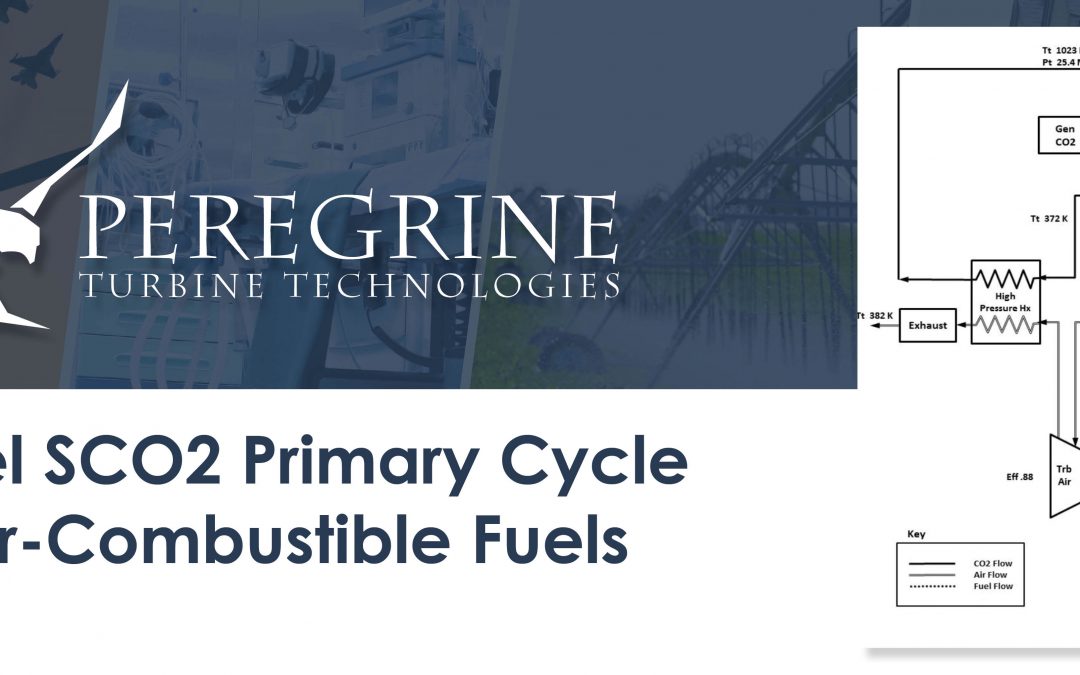Current supercritical carbon dioxide Brayton cycles are recuperated cycles because of the large amount of heat left after expansion through the turbine. The high level of efficiency of SCO2 cycles is largely owing to the use of recuperators to recapture this heat. However this characteristic has made it difficult to incorporate closed-cycle SCO2 designs in applications where air-combustible fuels such as fossil fuels are the source of heat.
For air-combustible heat sources the ability to transfer the heat of combustion into the cycle is greatly inhibited by the high air-to-SCO2 heat exchanger SCO2 inlet temperature which has been substantially raised by preheating within the recuperator. The results are fairly high flue exhaust gas temperatures and low cycle efficiencies that are not very competitive with existing gas turbine technologies. This problem doesn’t exist for solar and nuclear type heat sources; applications where SCO2 has been embraced enthusiastically.
In this paper, Peregrine Turbine Technologies, LLC presents a novel proprietary cycle designed to employ air-combustible fuels with a closed SCO2 Brayton cycle design, while achieving high thermal efficiencies. The ability to generate shaft power using fossil and other air-combustible fuels including biomass in primary cycle will facilitate unprecedented fuel efficiency in applications ranging from power generation, naval propulsion, oil and gas industry compressor drives, locomotive drives, automotive and eighteen wheeler drives, and more. The ability to achieve high thermal efficiencies in smaller powerplants using air-combustible fuels will greatly impact life-cycle costs in all of these applications while substantially reducing emissions.


